With her various overtures and right noises at the right time, Mamata is once again trying to reshape her image from being a regional leader to one with national appeal and acceptability.
After all, the charge of building a Federal Front may also bring to the fore Mamata's chances to become prime minister in 2019.
A revealing excerpt from Shutapa Paul's Didi: The Untold Mamata Banerjee.
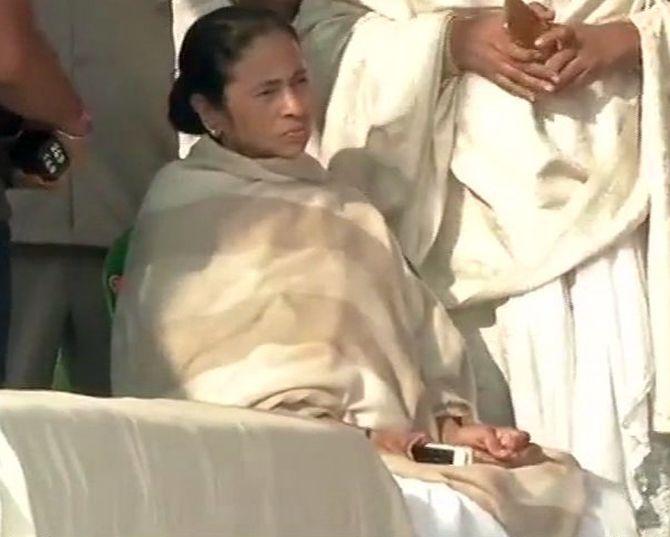
May is a time of summer lull in Bengal. This year (2018) the calm is distinctive. Just a few weeks ago, the hectic activity surrounding the panchayat polls had come to an end.
Mamata and her party registered yet another thumping victory winning 19,394 gram panchayat seats. But the national attention was distracted by two factors -- reports of unprecedented political violence in the state especially on polling day and the BJP emerging as the runner-up with 5,759 seats.
Of the 48,650 seats in 3358 gram panchayats, 16,814 seats were left uncontested.
Of the 9,217 seats in 341 panchayat samitis, 3,059 did not see an election fight.
In the twenty zilla parishads, 203 of the 825 seats were uncontested.
The Opposition parties moved court alleging that their candidates were not able to file nominations.
Eventually, the TMC won 34 per cent uncontested seats even before a single vote was cast.
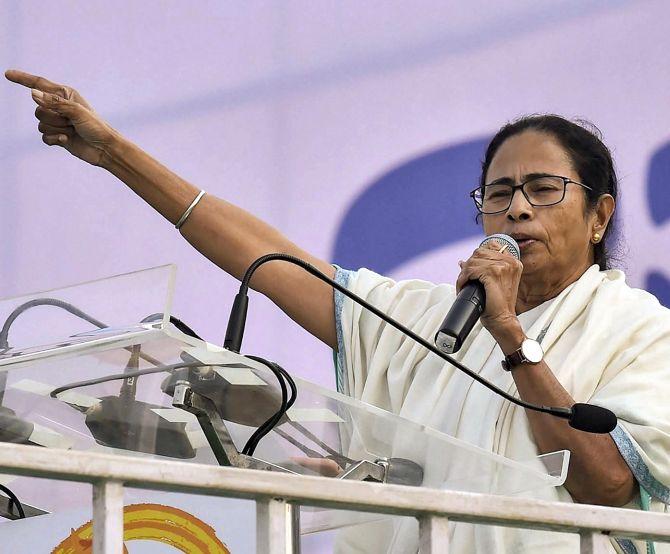
But Mamata's victory was bittersweet. Panchayat polls have a history of being violent, but when news channels flashed the images of strong-arming and destruction of votes on loop, the rest of the country took notice.
Ballot boxes were found destroyed in ponds and goons were caught on camera preventing voters from reaching the polling booths.
Footage of a couple who had been allegedly burnt alive in poll violence also did the rounds. Bengal looked like a state where there was no law of the land.
The election commissioner promptly announced re-election in several booths, but the victor remained the same.
The cases of violence were brushed aside by the TMC as being lesser in number than during the Left regime's time. But the brouhaha was enough to make the Union home minister demand a detailed report from the state government.
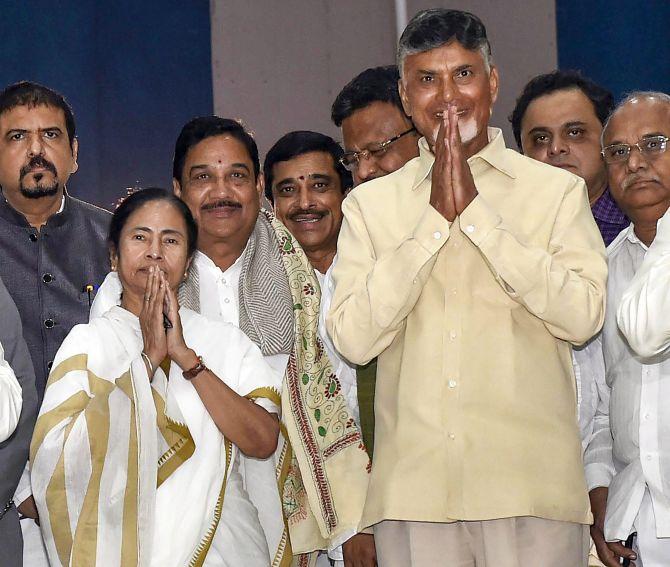
While speaking about the panchayat polls, Mamata seemed rattled and alleged that various groups had ganged up against her. She meant that the CPI-M, Congress and the BJP had joined forces against the TMC.
The CPI-M and Congress, however, peddled a different story. They said that in spite of Mamata's open attacks against Prime Minister Narendra Damodardas Modi at public rallies and on social media, she could still become an NDA ally at an opportune moment.
The TMC did not back the impeachment of then Chief Justice Dipak Misra neither did the party participate in the no-confidence motion that the Congress and some other Opposition parties had tried to move.
On May 25, 2018, when Mamata shared the stage with Prime Minister Modi and his Bangladeshi counterpart Sheikh Hasina at the annual convocation of Visva Bharati University in Birbhum, there was no noticeable animosity between the leaders.
In fact, quite the opposite. They shared the stage, took group photographs and Modi even looked out for Mamata as they walked on a slippery helipad.
Is Mamata keeping her options open?
Can she once again afford to go back to the NDA, especially at a time when the Congress and regional parties are prepared to do anything to wrest power away from the BJP as in the Karnataka assembly elections of 2018? Mamata's closest aides say no.
Mamata, they believe, is genuinely trying to build a Federal Front that will be non-Congress, non-BJP.
She has many a time spoken openly about the Congress's political missteps but her lines of communication are always open with Rahul Gandhi and Sonia Gandhi. Mamata has been keeping in touch with all the regional leaders, offering her advice and support whenever needed.
When Janata Dal-Secular's H D Deve Gowda was considering the Congress's offer for a post-poll alliance in Karnataka, Mamata telephoned and advised him to take it.
She is also regularly in touch with the younger lot of leaders such as Akhilesh Yadav, Arvind Kejriwal, H D Kumaraswamy, Y S Jagan Mohan Reddy and Hardik Patel.
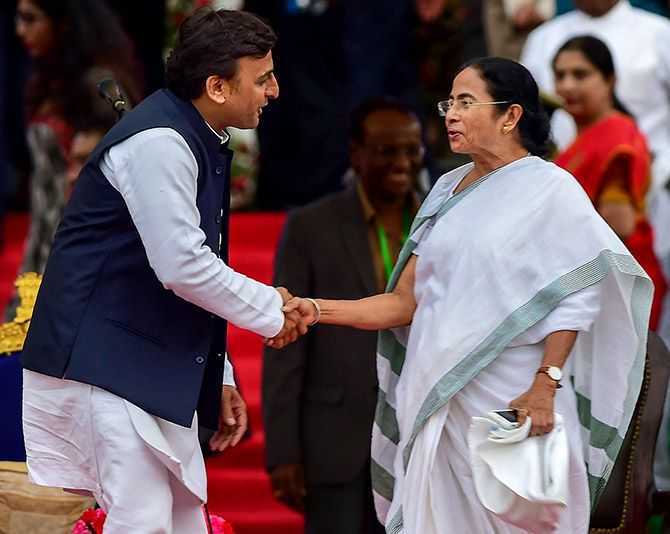
More recently, Mamata has been proactive in shaping her image as a national leader. She is seen in Delhi often and regularly meets leaders of various parties who may help her sew the Federal Front together.
She attended the swearing-in ceremony of Karnataka Chief Minister H D Kumaraswamy and when DMK patriarch M K Karunanidhi breathed his last, she immediately flew down to Chennai and headed to his Gopalapuram residence and became one of the first people to pay their respects to him.
Mamata is also more vocal about national issues, be it the steadily weakening Indian rupee or the rising fuel prices that have been burning a hole in the aam aadmi's pocket.
She has been acerbic in her criticism of the Modi government. Every attack seems more scathing than the last.
Her coterie insists that this proves her game plan -- she wants to see the back of the BJP in the state and in 2019.
'Over the years, the party (the BJP) has failed to keep promises. Moreover, the audacity, arrogance and atrocity of their leaders has become intolerable. Ban of high value notes, hurried implementation of GST without preparation and failure to control the alarming rise of fuel prices will go against the party,' she said.
'The people will be united to vote against BJP and when people are driven by some view then it is difficult to change their mindset. You cannot change it even by spending money.'
Of all her attacks, Mamata has been vitriolic in her criticism of the National Register of Citizens that was implemented in Assam, based on which 40 lakh people were declared 'illegal'.
Mamata has taken the government head on and dared it to go ahead with the exercise in Bengal, which too has historically witnessed an influx of illegal immigrants from Bangladesh.
Though early on in her career she had been against the entry of illegal immigrants, today she vociferously opposes the NRC which, according to her, wrongfully evicts people.
'They (the BJP) are trying to wrongfully evict many people from Assam. Some are even threatening to evict people from Bengal through a similar exercise here. I dare them to lay a finger on us. They will understand what Bengal is made of,' Mamata challenged.
With her various overtures and right noises at the right time, Mamata is once again trying to reshape her image from being a regional leader to one with national appeal and acceptability.
After all, the charge of building a Federal Front may also bring to the fore Mamata's chances to become prime minister in 2019.
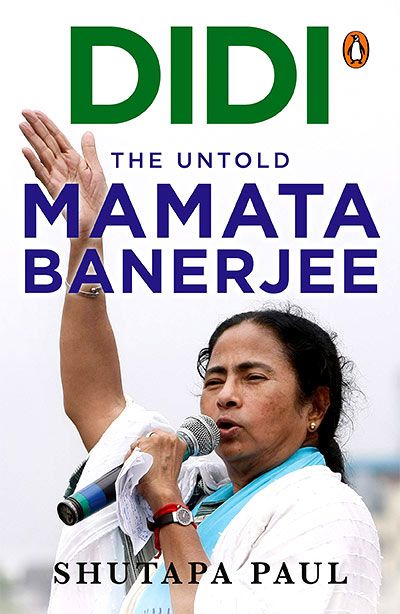
In 2014, when her name made the rounds as possible prime ministerial candidate should a motley group of regional parties get to call the shots, her most trusted aides and confidantes were excited.
They teased Didi that they may have to shift to 7, Race Course Road, the official residence of the prime minister of India. Mamata simply asked them to dream on.
In 2019 though, there is a strong possibility that should the alliance of regional parties perform well, even with the Congress's support from the inside or outside, a regional leader will be more acceptable by all for the top job.
But does Mamata, who calls herself a commoner and a Less Important Person, harbour such a dream?
Like a good politician, she is preparing for any eventuality.
Excerpted from Didi: The Untold Mamata Banerjee by Shutapa Paul, with the kind permission of the publishers, Penguin Random House India.











 © 2025
© 2025